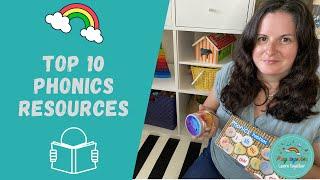Top 10 Key Characteristics You Need to Teach Your Child.
Description
Curiosity
Kids’ natural curiosity can seem like an annoyance to busy parents, but it is an important trait that should not be stifled. Many of the world’s leading inventors and entrepreneurs point to their natural curiosity as the roots of their successes. “Curiosity is one of the most permanent and certain characteristics of a vigorous intellect,” observed author Samuel Johnson. Curiosity can make learning more interesting and result in more active rather than passive thinking, which is good for the brain.
Social Skills
Social interaction is a basic part of life for both children and adults. So learning appropriate social skills is essential. Children with good social skills tend to do better in school, have a better self-image and are better at resolving conflicts. Some kids are born with the charm and outgoing personality needed to get along with others, but for some, socializing may be more difficult.
Resilience
Life can be hard, even for kids. Everyone needs some level of resilience to get through the tough times. When children learn to be resilient, they are better able to deal with the traumas and difficulties they will surely face. Many parents understandably try to shield their kids from painful situations, but teaching them resilience will serve them better in the long run. If your child is having a problem in school or with friends, try problem-solving together so he learns how to manage the problem, instead of just running away from it.
Integrity
Often, it is not until children do something dishonest that parents have a discussion with them about what it means to have integrity. But ideally kids should learn this characteristic before they are faced with challenging ethical questions. Discuss your family values with your children and try asking what your child would do if faced with ethical dilemmas, such as seeing a friend steal from another student’s desk or cheating to get better grades.
Resourcefulness
Resourcefulness—finding solutions to problems—is a trait that businesses look for in employees and it should be developed in childhood. When kids have all their needs met, as middle class American children usually do, they are not often called upon to be resourceful. Having the Internet and limitless apps at their fingertips is convenient, but not helpful in building resourcefulness in kids.
Creativity
Most think of artistic expression when hearing the word “creativity,” but it encompasses more than that. It involves imagination and creative expression in whatever form that takes. In addition to academic endeavors, children should take time for creative activities, such as music, photography, theater, making creations from clay or other materials, visiting museums and nature preserves, as well as drawing and painting. Fostering creativity in children will benefit them in other ways as well, including building their communications skills, improving their cognitive abilities such as problem-solving, and developing their emotional development.
Empathy
In a study by Harvard University’s Making Caring Common Project, 80 percent of kids surveyed said they valued achievement or happiness over caring for others. And those surveyed were three times more likely to agree with the statement, “My parents are prouder if I get good grades than if I’m a caring community member.” It’s up to parents to encourage kids’ natural sense of empathy for others and to stress the importance of caring for others as much as getting good grades.
Assertiveness
Somewhere between being overly aggressive and painfully timid lies assertiveness. It involves being bold and confident, and speaking up when necessary but still remaining respectful. Being assertive “fosters insight, wisdom, patience, tolerance, confidence and acceptance,” says Lisa M. Schab, author of Cool, Calm and Confident: A Workbook to Help Kids Learn Assertiveness Skills.
Humility
There is an important balance between having positive self-esteem and remaining humble that all kids and adults need to learn. In today’s parenting culture that emphasizes praise and validation, it can be a challenge to ensure that kids still have humility. Kids who lack humility may grow up to be arrogant adults, and no one wants that. Yet humility can be in harmony with confidence and positive self-esteem because when a child is self-assured and does not feel inferior to others, he won’t feel the need to brag about his talents and achievements.
Confidence
Experts say that having positive self-esteem has a strong correlation to behavior and happiness, so teaching a child to have confidence is important. “Because there is such a strong parallel between how your child feels about himself and how he acts,” says William Sears, MD, “it is vital to discipline to raise a confident child.”
Thank you for watching.
please suscribe for more videos.





















Comments